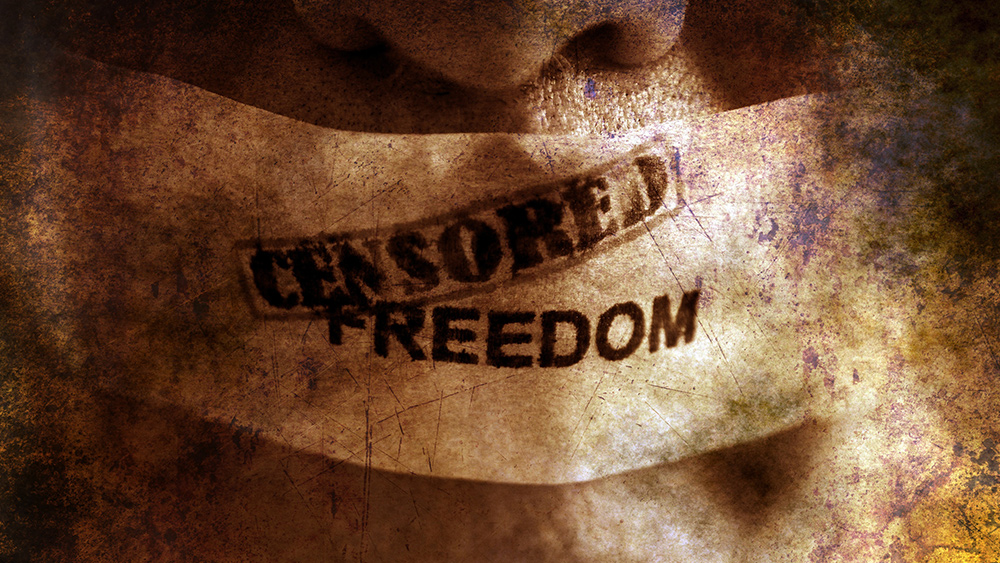Big Tech companies, electric car manufacturers profiting off child labor in Congo
08/02/2021 / By Nolan Barton

Big Tech companies and electric car manufacturers are profiting off child labor in the Democratic Republic of the Congo (DRC).
Apple, Alphabet (the parent company of Google), Dell Technologies, Microsoft and Tesla are putting Congelese children in danger in their quest for cobalt – a key component of rechargeable lithium-ion battery.
Those companies are facing a class-action lawsuit filed in U.S. federal court in Washington, D.C. in December 2019 and amended in June last year. “Our children are dying like dogs,” said one of the plaintiffs, whose son and cousin died while working in cobalt mines.
The lawsuit demands that the companies pay reparations and fund rehabilitation and education programs for the families of child miners killed or maimed by the horrific conditions in the cobalt mines.
Big Tech companies have argued the case should be dismissed, asserting they have no control over the mining practices in a foreign country and that the families lack standing to bring the lawsuit on U.S. soil. They added that they have no direct connection to mining on foreign soil.
But the lawsuit insists those companies are simply turning a blind eye to the abuses that have seen children getting killed in tunnel collapses and losing limbs or suffering from other horrific injuries caused by mining accidents.
Cruel exploitation fueled by greed
According the lawsuit, the cobalt used by the companies “was produced by children working under extremely hazardous conditions.” It says that “hundreds, if not thousands, of children have been maimed or killed to produce the cobalt needed for the world’s modern tech gadgets produced by defendants and other companies.”
“Cobalt is a key component of every rechargeable lithium-ion battery in all of the gadgets made by defendants and all other tech and electric car companies in the world that has brought on the latest wave of cruel exploitation fueled by greed, corruption and indifference to a population of powerless, starving Congolese people,” the lawsuit reads. (Related: GREEN is MEAN: Electric cars and other “green” tech is built on the backs of child slave labor.)
The lawsuit notes that every smartphone, tablet, laptop, electric vehicle or other device containing a lithium-ion rechargeable battery requires cobalt in order to recharge. “Put simply, the hundreds of billions of dollars generated by the defendants each year would not be possible without cobalt mined in the DRC,” it says.
In 2016, Amnesty International published a major report on the conditions for child laborers mining cobalt in the DRC.
The report, called “This Is What We Die For – Human Rights Abuses in the Democratic Republic of Congo Power the Global Trade in Cobalt,” said it is widely recognized on an international scale that the involvement of children in mining constitutes one of the worst forms of child labor, which governments are required to prohibit and eliminate.
Amnesty International partnered with the campaign group African Resources Watch (Afrewatch) to interview 87 cobalt miners, including 17 children. They found children as young as seven working long hours in hazardous conditions. “I would spend 24 hours down in the tunnels. I arrived in the morning and would leave the following morning,” a 14-year-old miner named Paul told them.
“It is a major paradox of the digital era that some of the world’s richest, most innovative companies are able to market incredibly sophisticated devices without being required to show where they source raw materials for their components,” Afrewatch Executive Director Emmanuel Umpula said at the time.
Modern slavery worsens during pandemic
Modern slavery has worsened during the coronavirus (COVID-19) pandemic as many workers lost their jobs and were forced to look for opportunities in struggling economies. (Related: The corporations that are so concerned about slavery and social justice still rely on forced slave labor to make their profits.)
Changes in labor supply and demand have tempted some businesses to exploit vulnerable workers or force them to work through the pandemic. The pandemic have also made it more difficult for people caught up in modern slavery to come forward.
A Dow Jones report claimed that modern slavery generates $150 billion a year. The report defined modern slavery as situations of exploitation that a person cannot refuse or leave because of threats, violence, coercion, deception and/or abuse of power. Prior to the pandemic, the International Labor Organization estimated that there were 16 million victims of forced labor in the global supply chains. That number could be higher post-pandemic.
“It is the world’s fastest-growing criminal enterprise, hiding in plain sight. The disruption caused by the COVID-19 pandemic has created the perfect breeding ground for this issue to thrive in corporate supply chains, and many companies could be unwittingly falling foul of anti-slavery laws as a result,” the Dow Jones report said.
“Obviously, people should care about whether they’re participating in a global industry founded on capitalizing on human misery,” said Ingrid Verschuren, head of data strategy at Dow Jones. “Modern slavery presents particular challenges when it comes to operating global supply chains, especially given the disruption created by COVID-19.”
Follow Tyranny.news for more news and information related to forced labor and modern slavery.
Sources include:
Submit a correction >>
Tagged Under:
Apple, Big Tech, child labor, cobalt mine, electric car, enslaved, evil, exploitation, Google, human rights, lithium-ion battery, Microsoft, modern slavery, supply chain, tech giants, technocrats
This article may contain statements that reflect the opinion of the author
RECENT NEWS & ARTICLES
COPYRIGHT © 2018 EVILGOOGLE.NEWS
All content posted on this site is protected under Free Speech. EvilGoogle.news is not responsible for content written by contributing authors. The information on this site is provided for educational and entertainment purposes only. It is not intended as a substitute for professional advice of any kind. EvilGoogle.news assumes no responsibility for the use or misuse of this material. All trademarks, registered trademarks and service marks mentioned on this site are the property of their respective owners.




















